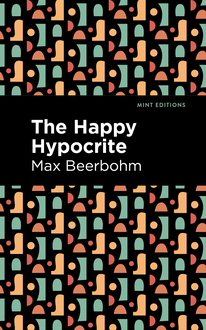-
 Univers
Univers
-
 Ebooks
Ebooks
-
 Livres audio
Livres audio
-
 Presse
Presse
-
 Podcasts
Podcasts
-
 BD
BD
-
 Documents
Documents
-
- Cours
- Révisions
- Ressources pédagogiques
- Sciences de l’éducation
- Manuels scolaires
- Langues
- Travaux de classe
- Annales de BEP
- Etudes supérieures
- Maternelle et primaire
- Fiches de lecture
- Orientation scolaire
- Méthodologie
- Corrigés de devoir
- Annales d’examens et concours
- Annales du bac
- Annales du brevet
- Rapports de stage
La lecture à portée de main
Vous pourrez modifier la taille du texte de cet ouvrage
Découvre YouScribe en t'inscrivant gratuitement
Je m'inscrisDécouvre YouScribe en t'inscrivant gratuitement
Je m'inscrisEn savoir plus
Vous pourrez modifier la taille du texte de cet ouvrage
En savoir plus

Description
Sister Carrie (1900) is a novel by Theodore Dreiser. Controversial for its honest depiction of work, desire, and urban life, Sister Carrie has endured as a classic of naturalist fiction and remains a powerful example of social critique over a century after its publication. Despite poor reviews upon publication, the novel is now considered a landmark of American literature. Tired of the countryside, Carrie Meeber moves to Chicago to live with her older sister and her husband. On the train ride into the city, she meets an older man, a handsome traveling salesman named Charles Drouet. Despite their obvious attraction, she decides to focus on finding work in order to pay rent. Carrie struggles at a local factory and longs to pursue her interest in acting, but knows that her obligation to family requires she work diligently and without complaint. One day, she encounters Charles on the street and joins him for lunch. He offers to take her in, suggesting that she need no longer worry about factory work or her sister, and remarking on her natural beauty and effortless charm. Soon, however, she strikes up a relationship with an unhappily married man, risking her stability with Charles and tying her fortunes to Hurstwood, who soon proves arrogant and manipulative. With a beautifully designed cover and professionally typeset manuscript, this edition of Theodore Dreiser’s Sister Carrie is a classic of American literature reimagined for modern readers.
Sujets
Informations
| Publié par | Mint Editions |
| Date de parution | 21 mai 2021 |
| Nombre de lectures | 0 |
| EAN13 | 9781513287355 |
| Langue | English |
| Poids de l'ouvrage | 2 Mo |
Informations légales : prix de location à la page 0,0500€. Cette information est donnée uniquement à titre indicatif conformément à la législation en vigueur.
Extrait
Sister Carrie
Theodore Dreiser
Sister Carrie was first published in 1900.
This edition published by Mint Editions 2021.
ISBN 9781513282336 | E-ISBN 9781513287355
Published by Mint Editions®
minteditionbooks .com
Publishing Director: Jennifer Newens
Design & Production: Rachel Lopez Metzger
Project Manager: Micaela Clark
Typesetting: Westchester Publishing Services
C ONTENTS I. T HE M AGNET A TTRACTING : A W AIF A MID F ORCES II. W HAT P OVERTY T HREATENED : O F G RANITE AND B RASS III. W EE Q UESTION OF F ORTUNE : F OUR- F IFTY A W EEK IV. T HE S PENDINGS OF F ANCY : F ACTS A NSWER WITH S NEERS V. A G LITTERING N IGHT F LOWER : T HE U SE OF A N AME VI. T HE M ACHINE AND THE M AIDEN : A K NIGHT OF T O-DAY VII. T HE L URE OF THE M ATERIAL : B EAUTY S PEAKS FOR I TSELF VIII. I NTIMATIONS BY W INTER : A N A MBASSADOR S UMMONED IX. C ONVENTION’S O WN T INDER- B OX : T HE E YE T HAT IS G REEN X. T HE C OUNSEL OF W INTER : F ORTUNE’S A MBASSADOR C ALLS XI. T HE P ERSUASION OF F ASHION : F EELING G UARDS O ’ER I TS O WN XII. O F THE L AMPS OF THE M ANSIONS : T HE A MBASSADOR P LEA XIII. H IS C REDENTIALS A CCEPTED : A B ABEL OF T ONGUES XIV. W ITH E YES AND NOT S EEING : O NE I NFLUENCE W ANES XV. T HE I RK OF THE O LD T IES : T HE M AGIC OF Y OUTH XVI. A W ITLESS A LADDIN : T HE G ATE TO THE W ORLD XVII. A G LIMPSE T HROUGH THE G ATEWAY : H OPE L IGHTENS THE E YE XVIII. J UST O VER THE B ORDER : A H AIL AND F AREWELL XIX. A N H OUR IN E LFLAND : A C LAMOUR H ALF H EARD XX. T HE L URE OF THE S PIRIT : T HE F LESH IN P URSUIT XXI. T HE L URE OF THE S PIRIT : T HE F LESH IN P URSUIT (C ONTINUED ) XXII. T HE B LAZE OF THE T INDER : F LESH W ARS WITH THE F LESH XXIII. A S PIRIT IN T RAVAIL : O NE R UNG P UT B EHIND XXIV. A SHES OF T INDER : A F ACE AT THE W INDOW XXV. A SHES OF T INDER : T HE L OOSING OF S TAYS XXVI. T HE A MBASSADOR F ALLEN : A S EARCH FOR THE G ATE XXVII. W HEN W ATERS E NGULF U S W E R EACH FOR A S TAR XXVIII. A P ILGRIM , A N O UTLAW : T HE S PIRIT D ETAINED XXIX. T HE S OLACE OF T RAVEL : T HE B OATS OF THE S EA XXX. T HE K INGDOM OF G REATNESS : T HE P ILGRIM A DREAM XXXI. A P ET OF G OOD F ORTUNE : B ROADWAY F LAUNTS ITS J OYS XXXII. T HE F EAST OF B ELSHAZZAR : A S EER TO T RANSLATE XXXIII. W ITHOUT THE W ALLED C ITY : T HE S LOPE OF THE Y EARS XXXIV. T HE G RIND OF THE M ILLSTONES : A S AMPLE OF C HAFF XXXV. T HE P ASSING OF E FFORT : T HE V ISAGE OF C ARE XXXVI. A G RIM R ETROGRESSION : T HE P HANTOM OF C HANCE XXXVII. T HE S PIRIT A WAKENS : N EW S EARCH FOR THE G ATE XXXVIII. I N E LF L AND D ISPORTING : T HE G RIM W ORLD W ITHOUT XXXIX. O F L IGHTS AND OF S HADOWS : T HE P ARTING OF W ORLDS XL. A P UBLIC D ISSENSION : A F INAL A PPEAL XLI. T HE S TRIKE XLII. A T OUCH OF S PRING : T HE E MPTY S HELL XLIII. T HE W ORLD T URNS F LATTERER : A N E YE IN THE D ARK XLIV. A ND T HIS IS N OT E LF L AND : W HAT G OLD WILL N OT B UY XLV. C URIOUS S HIFTS OF THE P OOR XLVI. S TIRRING T ROUBLED W ATERS XLVII. T HE W AY OF THE B EATEN : A H ARP IN THE W IND
I
T HE M AGNET A TTRACTING : A W AIF A MID F ORCES
When Caroline Meeber boarded the afternoon train for Chicago, her total outfit consisted of a small trunk, a cheap imitation alligator-skin satchel, a small lunch in a paper box, and a yellow leather snap purse, containing her ticket, a scrap of paper with her sister’s address in Van Buren Street, and four dollars in money. It was in August, 1889. She was eighteen years of age, bright, timid, and full of the illusions of ignorance and youth. Whatever touch of regret at parting characterised her thoughts, it was certainly not for advantages now being given up. A gush of tears at her mother’s farewell kiss, a touch in her throat when the cars clacked by the flour mill where her father worked by the day, a pathetic sigh as the familiar green environs of the village passed in review, and the threads which bound her so lightly to girlhood and home were irretrievably broken.
To be sure there was always the next station, where one might descend and return. There was the great city, bound more closely by these very trains which came up daily. Columbia City was not so very far away, even once she was in Chicago. What, pray, is a few hours—a few hundred miles? She looked at the little slip bearing her sister’s address and wondered. She gazed at the green landscape, now passing in swift review, until her swifter thoughts replaced its impression with vague conjectures of what Chicago might be.
When a girl leaves her home at eighteen, she does one of two things. Either she falls into saving hands and becomes better, or she rapidly assumes the cosmopolitan standard of virtue and becomes worse. Of an intermediate balance, under the circumstances, there is no possibility. The city has its cunning wiles, no less than the infinitely smaller and more human tempter. There are large forces which allure with all the soulfulness of expression possible in the most cultured human. The gleam of a thousand lights is often as effective as the persuasive light in a wooing and fascinating eye. Half the undoing of the unsophisticated and natural mind is accomplished by forces wholly superhuman. A blare of sound, a roar of life, a vast array of human hives, appeal to the astonished senses in equivocal terms. Without a counsellor at hand to whisper cautious interpretations, what falsehoods may not these things breathe into the unguarded ear! Unrecognised for what they are, their beauty, like music, too often relaxes, then weakens, then perverts the simpler human perceptions.
Caroline, or Sister Carrie, as she had been half affectionately termed by the family, was possessed of a mind rudimentary in its power of observation and analysis. Self-interest with her was high, but not strong. It was, nevertheless, her guiding characteristic. Warm with the fancies of youth, pretty with the insipid prettiness of the formative period, possessed of a figure promising eventual shapeliness and an eye alight with certain native intelligence, she was a fair example of the middle American class—two generations removed from the emigrant. Books were beyond her interest—knowledge a sealed book. In the intuitive graces she was still crude. She could scarcely toss her head gracefully. Her hands were almost ineffectual. The feet, though small, were set flatly. And yet she was interested in her charms, quick to understand the keener pleasures of life, ambitious to gain in material things. A half-equipped little knight she was, venturing to reconnoitre the mysterious city and dreaming wild dreams of some vague, far-off supremacy, which should make it prey and subject—the proper penitent, grovelling at a woman’s slipper.
“That,” said a voice in her ear, “is one of the prettiest little resorts in Wisconsin.”
“Is it?” she answered nervously.
The train was just pulling out of Waukesha. For some time she had been conscious of a man behind. She felt him observing her mass of hair. He had been fidgetting, and with natural intuition she felt a certain interest growing in that quarter. Her maidenly reserve, and a certain sense of what was conventional under the circumstances, called her to forestall and deny this familiarity, but the daring and magnetism of the individual, born of past experiences and triumphs, prevailed. She answered.
He leaned forward to put his elbows upon the back of her seat and proceeded to make himself volubly agreeable.
“Yes, that is a great resort for Chicago people. The hotels are swell. You are not familiar with this part of the country, are you?”
“Oh, yes, I am,” answered Carrie. “That is, I live at Columbia City. I have never been through here, though.”
“And so this is your first visit to Chicago,” he observed.
All the time she was conscious of certain features out of the side of her eye. Flush, colourful cheeks, a light moustache, a grey fedora hat. She now turned and looked upon him in full, the instincts of self-protection and coquetry mingling confusedly in her brain.
“I didn’t say that,” she said.
“Oh,” he answered, in a very pleasing way and with an assumed air of mistake, “I thought you did.”
Here was a type of the travelling canvasser for a manufacturing house—a class which at that time was first being dubbed by the slang of the day “drummers.” He came within the meaning of a still newer term, which had sprung into general use among Americans in 1880, and which concisely expressed the thought of one whose dress or manners are calculated to elicit the admiration of susceptible young women—a “masher.” His suit was of a striped and crossed pattern of brown wool, new at that time, but since become familiar as a business suit. The low crotch of the vest revealed a stiff shirt bosom of white and pink stripes. From his coat sleeves protruded a pair of linen cuffs of the same pattern, fastened with large, gold plate buttons, set with the common yellow agates known as “cat’s-eyes.” His fingers bore several rings—one, the ever-enduring heavy seal—and from his vest dangled a neat gold watch chain, from which was suspended the secret insignia of the Order of Elks. The whole suit was rather tight-fitting, and was finished off with heavy-soled tan shoes, highly polished, and the grey fedora hat. He was, for the order of intellect represented, attractive, and whatever he had to recommend him, you may be sure was not lost upon Carrie, in this, her first glance.
Lest this order of individual should permanently pass, let me put down some of the most striking characteristics of his most successful manner and method. Good clothes, of course, were the first essential, the things without which he was nothing. A strong physical nature, actuated by a keen desire for the feminine, was the next. A mind free of any consideration of the problems or forces of the world and actuated not by greed, but an insatiable love of variable pleasure. His method was always simple. Its principal element was daring, backed,
-
 Univers
Univers
-
 Ebooks
Ebooks
-
 Livres audio
Livres audio
-
 Presse
Presse
-
 Podcasts
Podcasts
-
 BD
BD
-
 Documents
Documents
-
Jeunesse
-
Littérature
-
Ressources professionnelles
-
Santé et bien-être
-
Savoirs
-
Education
-
Loisirs et hobbies
-
Art, musique et cinéma
-
Actualité et débat de société
-
Jeunesse
-
Littérature
-
Ressources professionnelles
-
Santé et bien-être
-
Savoirs
-
Education
-
Loisirs et hobbies
-
Art, musique et cinéma
-
Actualité et débat de société
-
Actualités
-
Lifestyle
-
Presse jeunesse
-
Presse professionnelle
-
Pratique
-
Presse sportive
-
Presse internationale
-
Culture & Médias
-
Action et Aventures
-
Science-fiction et Fantasy
-
Société
-
Jeunesse
-
Littérature
-
Ressources professionnelles
-
Santé et bien-être
-
Savoirs
-
Education
-
Loisirs et hobbies
-
Art, musique et cinéma
-
Actualité et débat de société
- Cours
- Révisions
- Ressources pédagogiques
- Sciences de l’éducation
- Manuels scolaires
- Langues
- Travaux de classe
- Annales de BEP
- Etudes supérieures
- Maternelle et primaire
- Fiches de lecture
- Orientation scolaire
- Méthodologie
- Corrigés de devoir
- Annales d’examens et concours
- Annales du bac
- Annales du brevet
- Rapports de stage
















